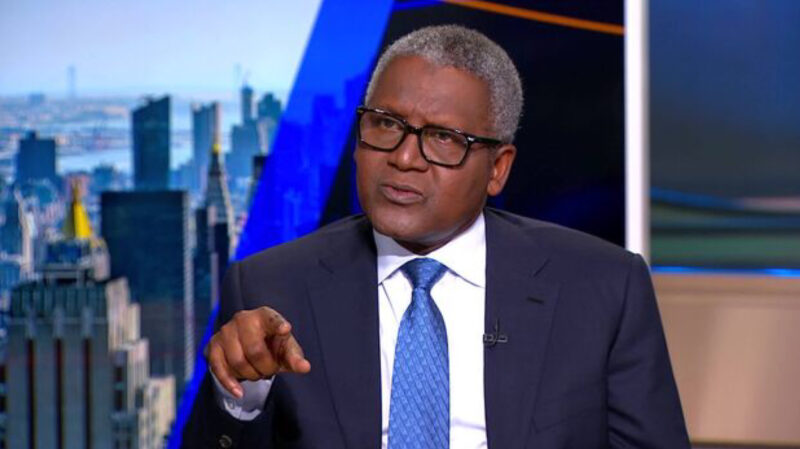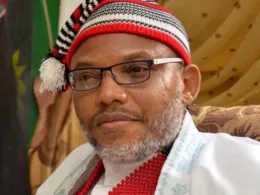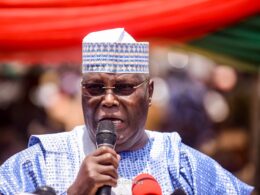Despite Nigeria’s capacity to produce over 3.4 million barrels of crude oil daily, Dangote pointed out that Africa imports nearly 3 million barrels of petroleum products each day
Lagos, Nigeria – Aliko Dangote, Chairman of Dangote Refinery and Petrochemical Company Limited, emphasized the need for Nigeria to enhance its crude oil production capabilities and manage its supply efficiently to provide sufficient feedstock for domestic refineries. This strategy aims to shift the country from a net importer to a net exporter of petroleum products.
Dangote made these remarks during a keynote speech at a summit organized by the Crude Oil Refinery Owners Association of Nigeria (CORAN) in Lagos, which brought together government officials and key players from the midstream and downstream oil sectors. Despite Nigeria’s capacity to produce over 3.4 million barrels of crude oil daily, Dangote pointed out that Africa imports nearly 3 million barrels of petroleum products each day, primarily from countries in Europe and Russia, costing approximately $17 billion in 2023.
He remarked that Nigeria has the potential to capitalize on this scenario by positioning itself as a net exporter of refined oil products, thereby reducing transportation distances and logistics costs. “Countries will be able to purchase their petroleum needs just in time,” said Dangote. He likened the refining initiative to Nigeria’s successful experience in cement production, expressing that the country could achieve similar results in the petroleum sector.
The Dangote Refinery has already begun supplying diesel and jet fuel sufficient to meet Nigeria’s needs and has commenced the production of Premium Motor Spirit (PMS), with plans to increase output soon. According to Dangote, the refinery’s refined products are already being exported to various global markets, including Europe, Brazil, the UK, the USA, Singapore, and South Korea.
Represented at the summit by Engr. Mansur Ahmed, Group Executive Director of Dangote Industries Ltd., Dangote stressed the importance of developing a refining capacity of 1.5 million barrels per day and ensuring a steady supply of domestic crude to take advantage of the current market opportunities.
While recognizing the challenges ahead, he urged the government to create incentives for investors, contrasting this approach with the Dangote Oil Refinery’s establishment, which did not rely on government incentives. He pointed out, “It is unfortunate that while countries like Norway invest oil revenues into future funds, Africa seems to be depleting future oil proceeds too quickly.”
Dangote also expressed optimism about President Bola Ahmed Tinubu’s administration, which is actively working to boost crude oil production through initiatives aimed at fast-tracking International Oil Company (IOC) divestments.
Highlighting the shifting dynamics in global petroleum markets, particularly within Europe, Dangote reiterated Nigeria’s unique opportunity to become a key player in the global oil industry. He called for a unified effort among stakeholders, suggesting that as Nigeria becomes a vibrant exporter of refined products, it will see an improved balance of trade and a boost in foreign currency income.
The theme of the summit, “Making Nigeria a Net Exporter of Petroleum Products,” which would have seemed far-fetched in previous years, is now within reach, according to Dangote. Despite being Africa’s largest crude oil producer, Nigeria had historically relied heavily on imports for its refined products needs. He stressed that the Dangote Petroleum Refinery could transform this landscape by establishing the nation as a forthcoming player in global downstream trade, already exporting refined products to various international markets.
Abdulrazaq Isa, Chairman of IPPG/Waltersmith Refinery & Petrochemicals Co. Ltd, commended Dangote for this shift and urged government support for local refiners by ensuring access to crude oil, maintaining domestic supply obligations, and addressing pricing and smuggling concerns.
Captain Emmanuel Iheanacho, Chairman of CORAN’s Board of Trustees and CEO of Integrated Oil & Gas, praised the Dangote Refinery for producing Euro-V products that protect citizens from harmful high-sulphur products. He reiterated the benefits of becoming a net exporter but stressed that increased investment is crucial for boosting crude production, noting Nigeria’s loss of approximately $83 billion annually by not meeting its OPEC quota.
Iheanacho emphasized the importance of tank farms for logistical support despite local refining capabilities and recommended that the Nigerian Midstream and Downstream Petroleum Regulatory Authority (NMDPRA) consider canceling import licenses, given that Nigeria can now fulfill its local demand.
Huub Stokman, Chairman of the Major Energies Marketers Association of Nigeria, remarked that Nigeria is on the cusp of becoming Africa’s refining powerhouse, which would significantly benefit the economy.
Momoh Oyarekhua, Chairman of CORAN, highlighted ongoing challenges related to crude supply and expressed commitment from domestic refiners to partner with regulators and other stakeholders to find solutions.
Senator Heineken Lopkobiri, Minister of State for Petroleum Resources, assured attendees that the government would continue refining frameworks to enhance crude production and sustain local refineries. Dr. Doris Uzoka-Anite, from the Ministry of Industry, Trade and Investment, underlined the Tinubu administration’s dedication to ensuring greater value addition for Nigeria’s mineral resources before exporting them.










Join our Channel...